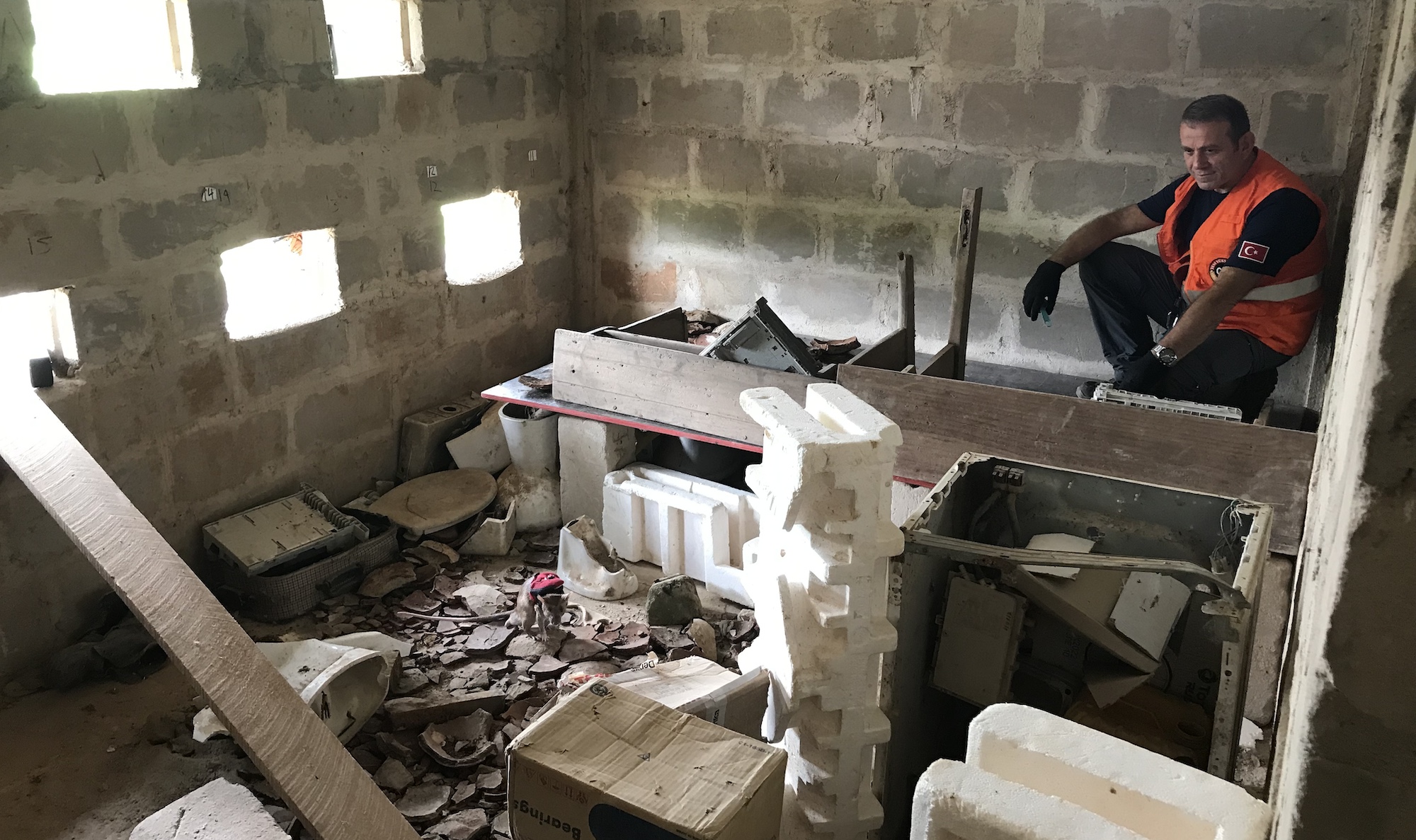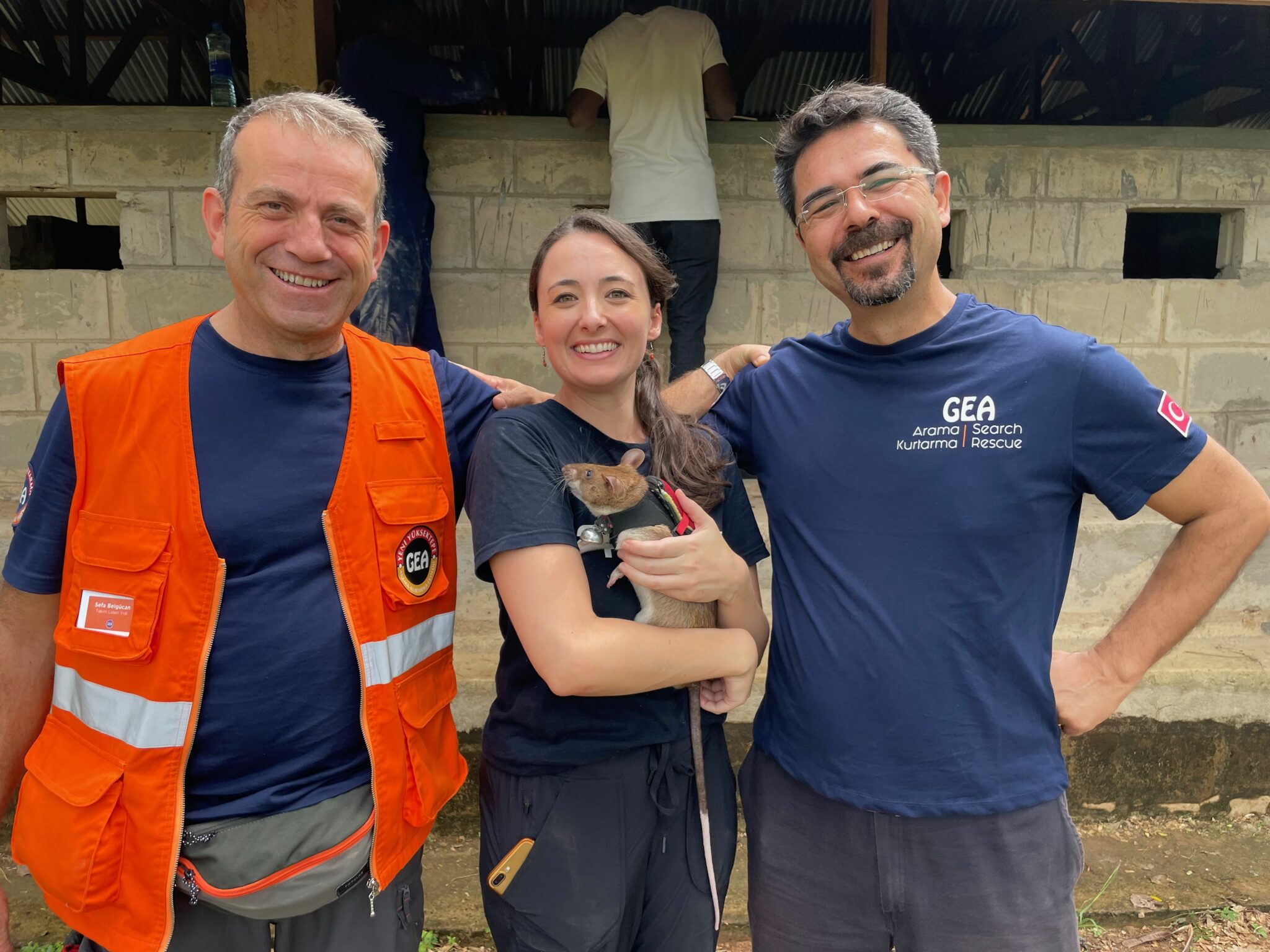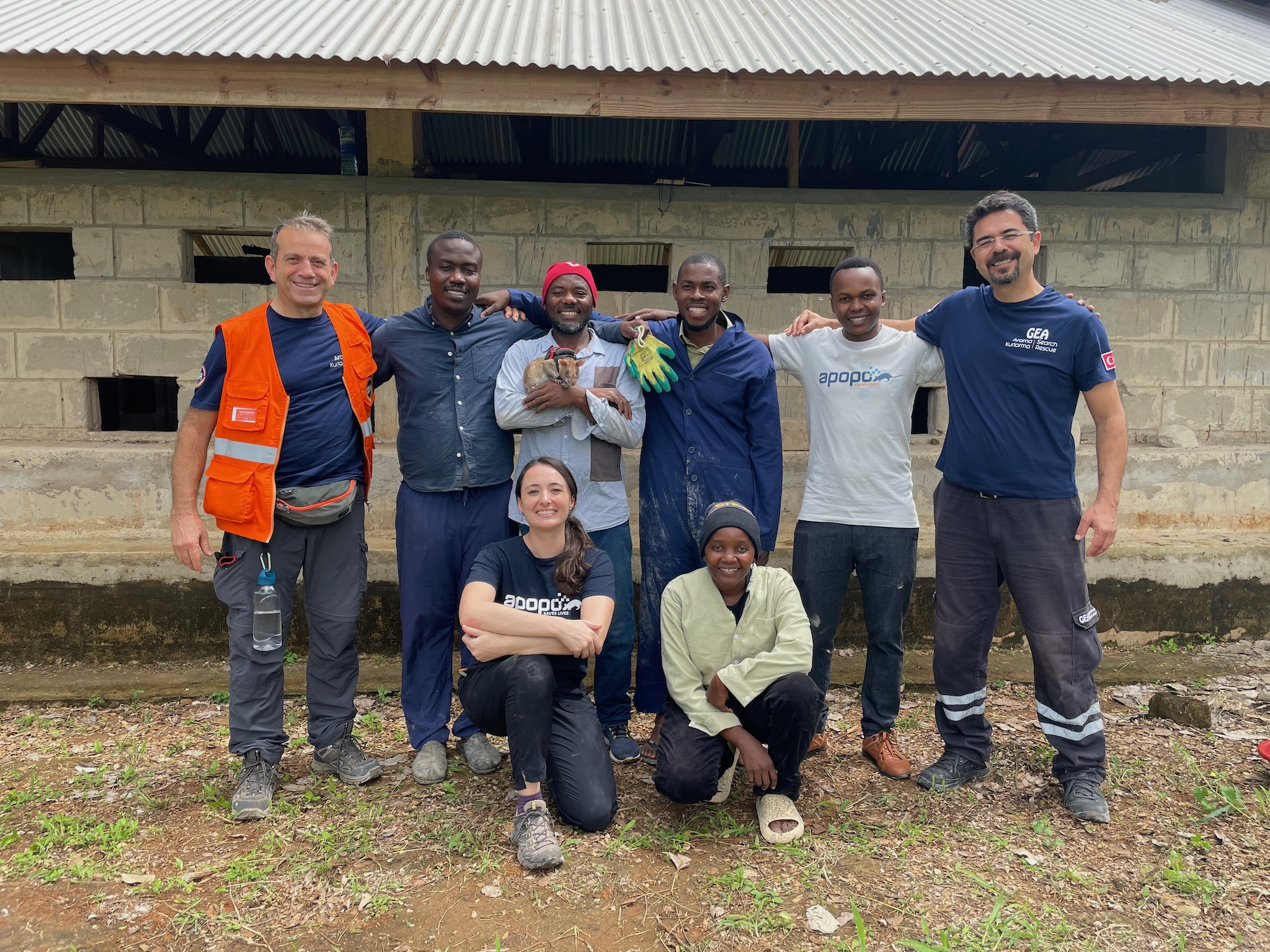APOPO recently hosted members from GEA at its Training and Innovation headquarters in Morogoro, Tanzania. This visit marks a significant step in the evolution of the RescueRATs project, aimed at integrating these intelligent animals into Search and Rescue operations.
Natural disasters like earthquakes and cyclones, which are predicted to increase in frequency due to climate change, pose a significant threat to human life. In such events, speed is critical for search and rescue teams to locate and save victims trapped under debris. However, traditional tools used in these operations often struggle to penetrate the rubble.
APOPO, in partnership with GEA, is exploring an innovative solution: using highly agile African giant pouched rats in these missions. This idea, inspired by APOPO’s successful HeroRATs program, focused on landmine and tuberculosis detection, could significantly complement and enhance current approaches to search and rescue.
GEA Experts Share Insights at APOPO’s Training Facility
Founded in 1994, GEA (Mother Earth) is a volunteer-driven organization dedicated to search and rescue missions, ecological initiatives, and humanitarian aid. The GEA Team conducts life-saving search and rescue operations in both national and international regions, responding to disasters and assisting individuals trapped in debris. Additionally, the team provides ongoing medical and humanitarian aid in affected areas as required.
The visit took place from November 20-24, and was attended by two experienced members of GEA from Turkey: Murat Beşparmak and Sefa Belgücan. Beşparmak, with 23 years of service, is the president of the GEA-Antalya branch and a seasoned team leader. Belgücan, a Search & Rescue team leader and instructor with 16 years’ experience at GEA-Istanbul, also brought extensive field experience to the table.
Engaging in Practical Search and Rescue Training Exercises

The primary focus of the visit was to get feedback on the current progress and prepare for the upcoming advanced training and trials in Turkey in 2024, and get feedback on APOPO’s mock debris site, designed to simulate real-life disaster scenarios. Here, the GEA experts advised on debris setup and created new arrangements to reflect actual Search & Rescue situations. They also observed the daily training routines of the RescueRATs and participated as novel targets in search exercises, providing the rats with unique challenges.
Strategic Meetings to Discuss Future Plans

In addition to the hands-on training, several strategic meetings were held. These discussions covered the strengths and limitations of current training methods, plans for advanced training in Turkey in 2024, operational trials, deployment strategies, and the design of technology-enabled field backpacks. The potential for training and testing the rats across various GEA sites in Turkey was also a topic of interest.
A Step Towards Advanced Search & Rescue Operations

Dr. Danielle Giangrasso (middle), the Behavioral Research Scientist leading the Search and Rescue project at APOPO, commented on the visit’s significance: “This visit was an instrumental step towards advancing our RescueRATs into Search and Rescue efforts in Turkey. Murat and Sefa provided our team with valuable insights into real-life S&R scenarios, which will be critical as our training advances into more complex stages. The entire RescueRAT team has enjoyed working with them and looks forward to our continued partnership with GEA.“
Future Prospects for the RescueRATs Initiative
As APOPO continues to develop the RescueRATs initiative in collaboration with GEA, the focus remains on enhancing the practical application of these trained rats in search and rescue operations. The prospective advanced training in Antalya in 2024, along with the exploration of using these rats at other GEA sites across Turkey, represents a step forward in this endeavor.
While still in the developmental phase, this initiative shows great potential for contributing to the effectiveness of search and rescue operations, highlighting the value of innovative approaches in humanitarian efforts.
APOPO’s Search & Rescue Project is made possible by our generous donors and partners



